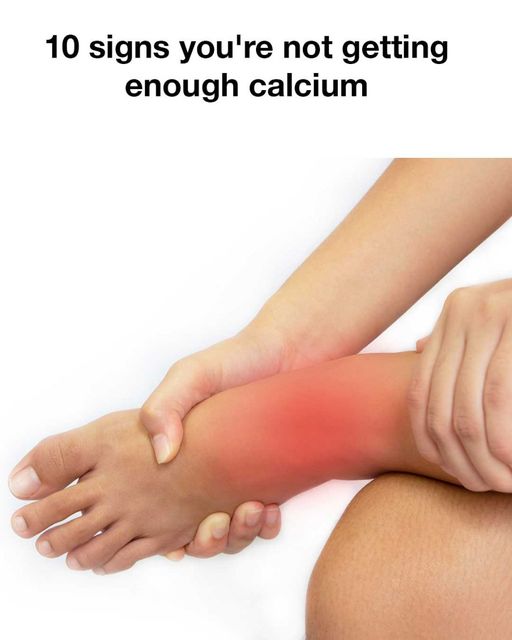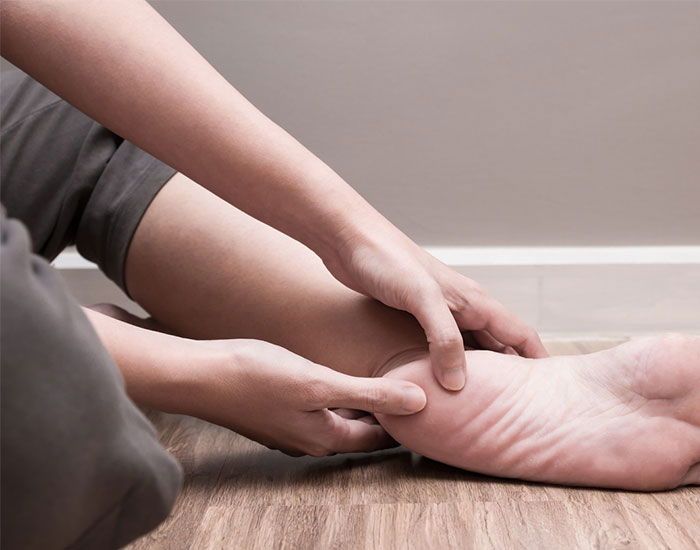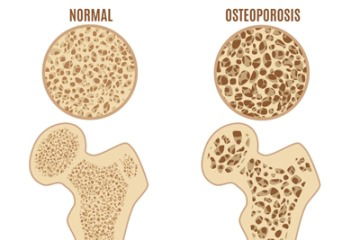
Calcium is an essential mineral that helps to keep our bones and teeth healthy, as well as other biological processes running smoothly. However, many people are unaware of the signs and symptoms of calcium insufficiency, which can lead to significant repercussions if not treated. Understanding the signs of low calcium intake can help you take proactive steps to reduce health risks and enhance your general well-being.
Understanding the Importance of Calcium
Calcium is essential not just for bone and tooth strength and integrity, but it also influences muscle function, nerve transmission, and cardiovascular health. Without enough calcium, the body may struggle to perform these vital functions adequately, which can lead to a variety of health problems over time. Getting enough calcium is critical for both immediate and long-term health.
How the Body Uses Calcium
Calcium is absorbed in the intestines and then stored in the bones and teeth, which serve as reservoirs for the mineral. It is also found in the bloodstream, where it aids in muscle contractions, blood clotting, and nerve signaling. The body constantly controls calcium levels, balancing absorption, storage, and excretion processes to provide optimum levels for optimal function.
Factors Contributing to Calcium Deficiency
Several factors can lead to calcium insufficiency, including insufficient dietary intake, poor absorption caused by gastrointestinal diseases, and certain drugs that interact with calcium metabolism. Additionally, age, hormonal changes (particularly in women), and lifestyle factors such as smoking and excessive coffee or alcohol consumption can all have an affect on calcium levels.
1. Fragile and Brittle Nails

One of the earliest noticeable indicators of calcium shortage is the state of your nails. If your nails are becoming frail, brittle, or prone to breakage, it could be a sign that your body isn’t getting enough calcium to keep them strong and healthy.
2. Frequent Muscle Cramps

Persistent muscle cramps, particularly in the legs and feet, can indicate low calcium levels. Calcium is essential for muscle function; a deficit can cause increased nerve sensitivity and muscle contractions, resulting in cramps and spasms.
3. Dental Problems

Calcium shortage can cause dental problems such tooth decay, gum disease, and brittle teeth. Calcium is essential for maintaining healthy teeth and gums, therefore a lack of it can cause a variety of dental issues that may necessitate professional treatment.
4. Tingling in Hands and Feet

A tingling sensation or numbness in your hands and feet can be an indication of calcium deficiency. This happens because low calcium levels can impair nerve activity, resulting in sensations like tingling or ‘pins and needles’.
5. Osteopenia and Osteoporosis

Long-term calcium shortage can cause osteopenia, a condition in which bone mineral density is lower than normal, and eventually lead to osteoporosis, which is characterized by weak and fragile bones. These disorders greatly increase the likelihood of fractures and other bone ᴅᴀᴍᴀɢᴇ.
6. Fatigue and Overall Weakness

Low calcium levels might cause symptoms such as fatigue or weakness. Calcium is necessary for energy synthesis, and a lack of it can affect metabolic processes, resulting in weariness and overall bodily weakness.
7. Dry Skin and Coarse Hair

Calcium is also essential for having healthy skin and hair. A deficit can lead to dry, itchy skin and coarse, brittle hair. Correcting calcium deficiency can help enhance the texture and condition of your skin and hair.
8. Irregular Heartbeat

Calcium is necessary for the correct function of the heart muscle. Inadequate calcium levels can cause irregular heartbeats or palpitations, indicating that the heart is unable to sustain a normal rhythm.
9. Brain Fog and Memory Issues

Calcium insufficiency can cause cognitive disorders such as brain fog, poor attention, and memory loss. Calcium is required for neurotransmitter release and overall brain function, therefore low levels can have an influence on cognitive ability.
10. Poor Appetite and Digestive Problems

A lack of calcium can lead to digestive problems such as decreased appetite, stomach pains, and constipation. Because calcium assists muscle contraction, a deficit can impair the digestive tract’s functionality, resulting in these symptoms.
Preventing Calcium Deficiency
Preventing calcium deficiency requires a mix of dietary decisions, lifestyle changes, and, in some circumstances, supplements. A well-balanced diet rich in calcium and other critical elements, together with healthy living practices, can considerably minimize the risk of deficiency.
Calcium-Rich Foods to Include in Your Diet
Including calcium-rich foods to your diet is critical for maintaining proper levels of this mineral. Dairy products such as milk, cheese, and yogurt are good sources, as are leafy green vegetables, fortified cereals, nuts, and seeds. Ensuring variety in your diet can help you achieve your daily calcium needs.
The Role of Supplements in Maintaining Calcium Levels
Supplements can help those who struggle to get enough calcium from their diet alone. Calcium supplements are available in a variety of forms, including calcium carbonate and calcium citrate, and should be taken as prescribed by a healthcare provider to avoid any side effects and interactions.
Conclusion: Staying Proactive About Bone Health
Calcium is a fundamental nutrient that influences various aspects of health, particularly the strength and integrity of bones and teeth. Recognizing the signs of calcium deficiency and taking proactive steps to address them can help prevent long-term health issues. By maintaining a balanced diet, considering supplements when necessary, and seeking medical advice, you can ensure that your calcium levels remain optimal for overall health and well-being.















